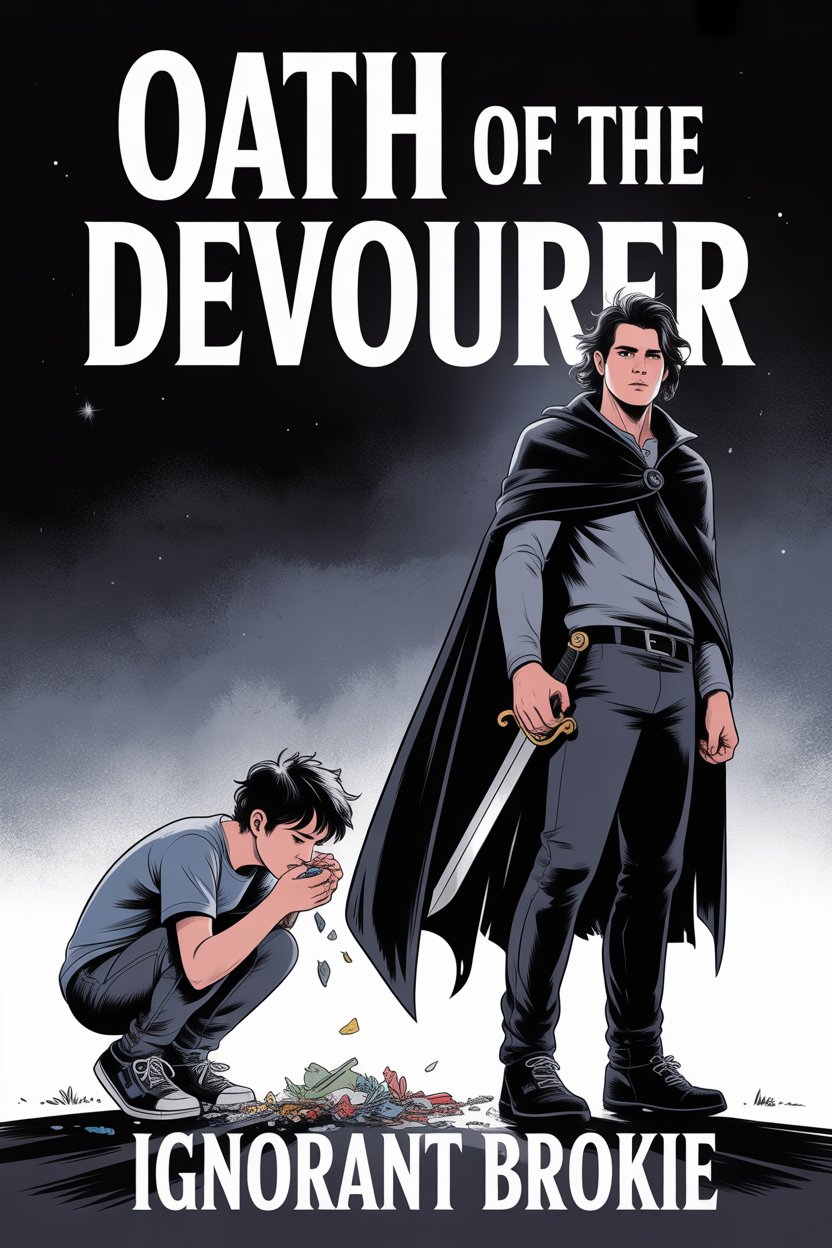18th Rotation of the Cyrandros Cycle, 3448 A.E. — Morning, Garrick’s Forge
The forge’s heat hit Kael like a living wall, wrapping around him, filling his lungs with the mingled scents of coal smoke, scorched iron, and oil. The air shimmered above the anvil, the rhythmic clang of Garrick’s hammer striking somewhere behind him like the heartbeat of the shop.
Kael’s own billet sat on the anvil before him—dull red, cooling too quickly. He slid it back into the forge, the tongs rattling faintly in his grip. The fire accepted it greedily, its orange glow licking along the metal’s surface.
Guide it. Don’t break it.
Garrick’s voice from that first lesson echoed in his mind. It wasn’t a metaphor. The metal had a will—not thoughts or feelings, but a kind of deep, slow preference for the shape it wanted to become. Force it the wrong way, and it would twist against you, crack in protest, or simply die under the hammer.
Kael pulled the billet from the heat when it reached a bright, hungry orange. His hammer hovered for a moment, and then—
Strike with your lifeforce, not just your muscle.
He inhaled, drawing up that subtle warmth in his chest, that second heartbeat Garrick had taught him to find. He let it flow down his arm and into the hammer’s head. When the blow landed, the impact rang differently—cleaner, deeper, as though the sound had weight. The metal moved, flattening evenly beneath the strike.
But the moment didn’t last. His next swing came down a shade too soon, the flow faltering, and the billet buckled sideways. He swore under his breath, turning it and trying again.
At first, every strike felt like arguing with a stubborn mule. The billet shuddered under the hammer, resisting here, collapsing there. The harder he tried to force it into line, the more it fought him, twisting its grain, warping into something useless.
The temptation to smash it into compliance was strong.
But Garrick’s warning from yesterday gnawed at him: A blade that’s beaten into shape against its will will never hold true.
He adjusted his grip and stance, trying to listen—not with his ears, but with his hands. The metal’s resistance wasn’t random. It was telling him where it didn’t want to go.
It was maddening.
The billet went back into the fire, came out again, and each time Kael tried to coax rather than dominate. Sometimes it worked—just for a heartbeat. Sometimes the lifeforce flowed cleanly into the hammer, the metal moving almost willingly beneath it. Those moments felt right, as if the hammer, the metal, and his pulse were all in time.
Then he’d lose it. A slip in rhythm, a flicker of doubt, and the billet would twist like a sneer.
Hours passed in that cycle. Heat, strike, resist, adjust. His forearms burned, his palms ached, and the ache in his shoulders felt like someone had lodged hot stones beneath the muscle. Scrap piled up on the bench beside him: bent rods, warped strips, jagged ends that had split like rotten wood.
By the time the forge’s wall-clock marked the half-day, he’d managed only a few stubby nails—misshapen things that would probably bend in a pine board.
He set the hammer down and straightened slowly, rolling his sore shoulders.
From across the room, Garrick quenched a long blade, steam curling around him in white, writhing shapes. He glanced Kael’s way just once before returning to the work of polishing the edge.
“Not bad for a morning,” the old smith said at last.
Kael blinked at the heap of junk on his bench. “Looks like trash.”
“They are,” Garrick agreed without hesitation, still running his cloth along the blade’s length. “But they’re better trash than you made yesterday.” He set the blade down and looked Kael dead in the eye. “Metal remembers the hands that shape it. Keep at it long enough, and it’ll remember yours.”
Kael wasn’t sure if it was praise or a challenge, but the words stuck.
He cleaned his station in silence, the phantom rhythm of the hammer still echoing through his arms. Outside, the cold morning air bit into the sweat on his skin as he stepped into the street.
His muscles were tired, his hands raw, but the day wasn’t over. The Voravex team was waiting. And this time, the thing resisting him wouldn’t be metal—it would be alive.







I loved this chapter! The way you described Kael in the forge made me feel every strike, every moment of frustration, and the rhythm of metal and lifeforce almost like I was there beside him. The transition to the Voravex team and the journey through the marsh was so immersive, I could practically feel the tension, the cold, and the weight of the terrain. I especially appreciated the small details about the carts and krellbeasts it really showed how the team adapts to the environment and why brute technology isn’t always the best solution. How did Kael’s experience with guiding metal in the forge influence how he observes and reacts in the field with the team?